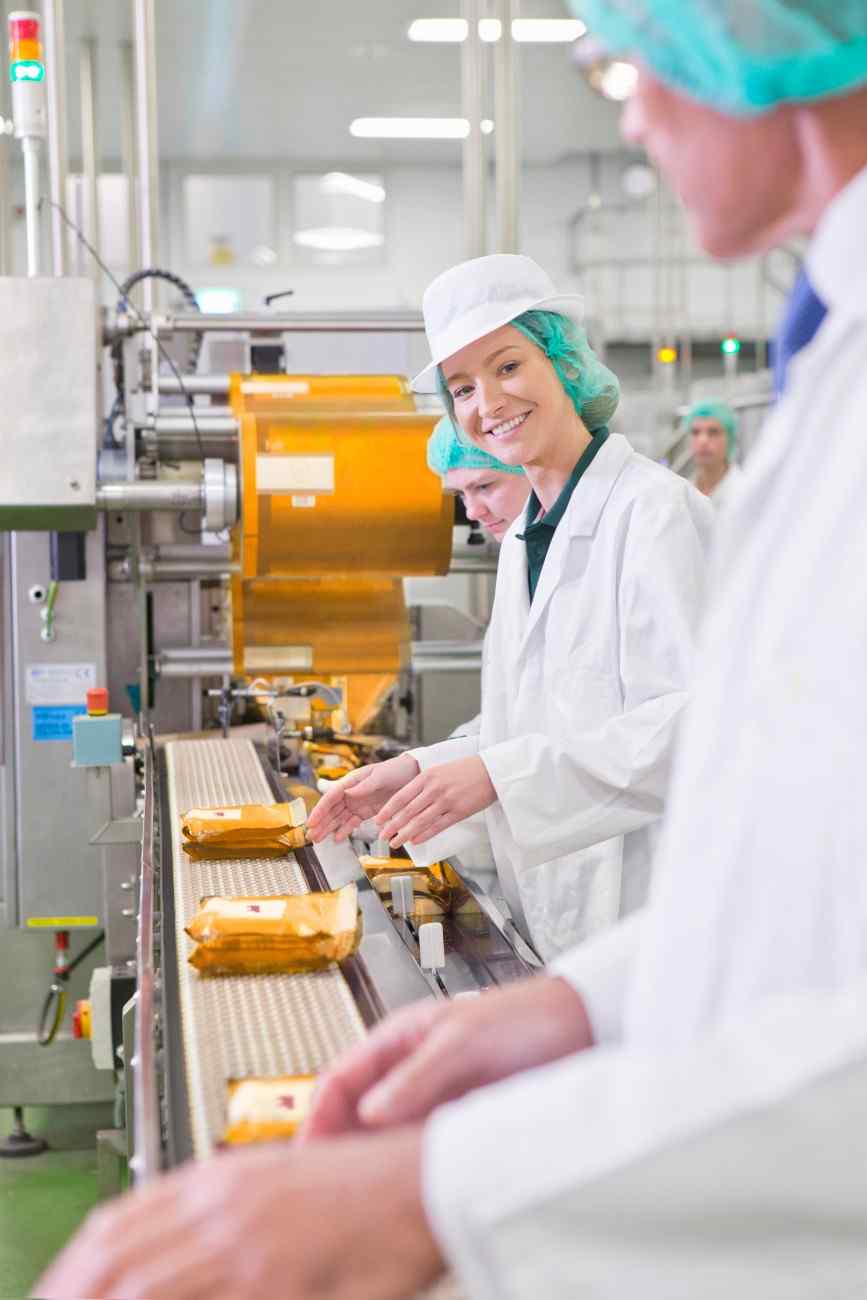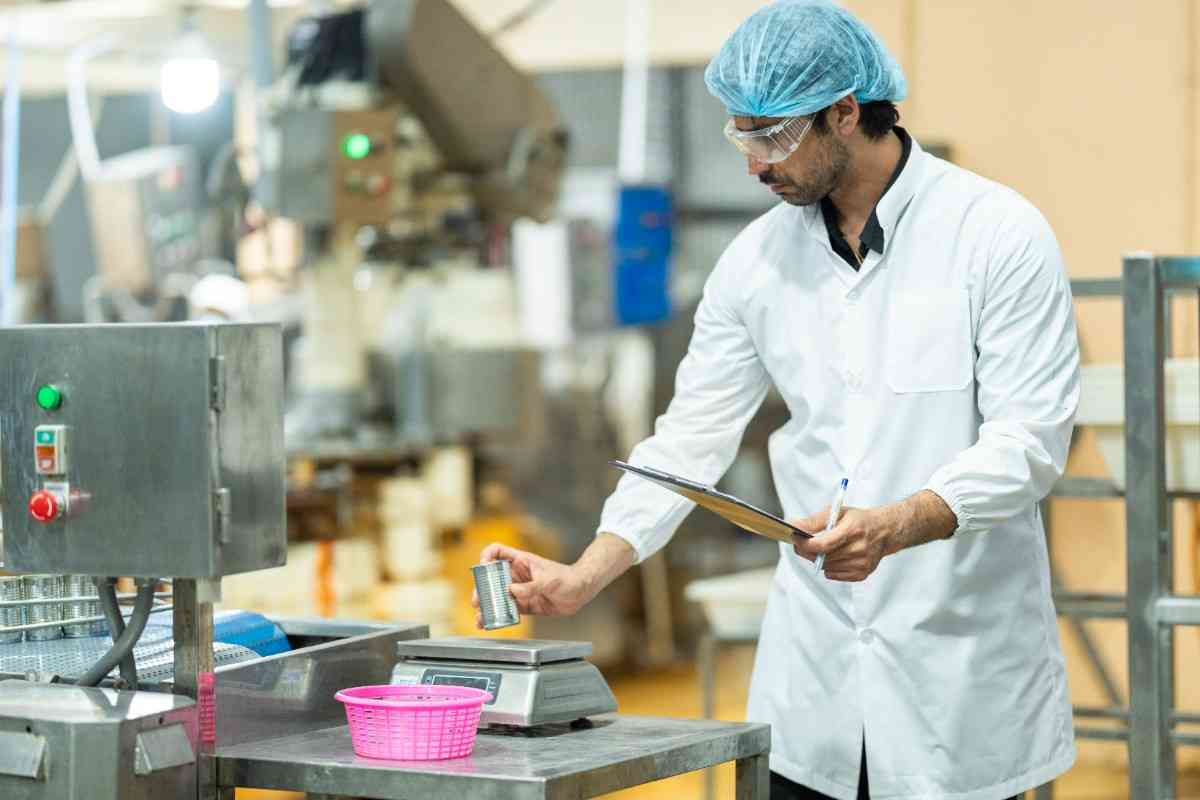Last Updated on June 17, 2025 by Admin
Table of Content
What Is Quality Assurance in the Food Industry
Quality assurance (QA) in the food industry refers to a systematic approach to ensuring food safety, consistency, and compliance with regulatory standards at every production stage. It involves implementing processes, guidelines, and inspections to maintain product integrity, prevent contamination, and enhance consumer trust.
QA encompasses raw material sourcing, production control, packaging, storage, and distribution, ensuring that food products meet legal, hygienic, and sensory requirements. It includes Hazard Analysis and Critical Control Points (HACCP), Good Manufacturing Practices (GMP), and ISO food safety standards. By monitoring and improving processes, food quality assurance helps maintain high standards in taste, nutrition, and safety, ultimately protecting consumer health and brand reputation.
The role played by the quality assurance:
The primary role of the Quality Assurance or QA department is to ensure that all the quality parameters are met with necessary requirements like internal or external standards, customer, legal and more.
- It should match with the continuous goal of maintaining and improving the present quality, keeping track of the record, reporting, problem hunting, and solving.
- The ultimate goal over here is to ensure that a safer and higher-quality item is delivered to the chosen customer.
Examples of Quality Control in the Food Industry
Monitoring Quality Control (QC) processes in the food industry is vital for making and ensuring the safety of food products, ensuring uniformity, and compliance with standards. Important QC measures include:
- Microbiological Testing – This is where food samples are examined for harmful microorganisms like *E. coli* and *Salmonella* to safeguard against possible contamination
- Chemical Analysis – Analysis of samples for the presence of non-toxic pesticides and artificially manufactured food materials and preservatives, ensuring compliance with safety norms.
- Metal Detection & Foreign Object Screening – Scanning for foods with metal, plastic, or other foreign materials with more advanced methods.
- Temperature Control & Storage Monitoring – This covers monitoring storage temperatures of perishable food items to guarantee they do not go bad.
- HACCP Implementation – Hazard Analysis and Critical Control Points (HACCP) in food processing takes care of contamination during production processes such as food processing by anticipating and guarding against possible emerging danger points.
- AI-based Quality Control – The use of AI is growing for real time tracking of food quality and diagnosing problems in production processes.
Separate Steps to Follow:
QA is equivalent to the term “safety” and cannot be placed otherwise. It consists of multiple steps alongside a comprehensive controlling mechanism. We at FICSI are ready to help share these steps with you for better food quality management, especially if you want to work in the food processing industry later in life.
- At first, it starts by crafting a plan as per the QA management system. It is a vital step and needs to be taken care of with proper consideration.
- The plan is subject to be pretty unique for each one of the manufacturers. So, it is mandatory to tailor-make the plan perfectly.
- This section will not just include inspections, but testing and monitoring of the activities as a major part of the quality control mechanism.
- It should further control added activities, designed to prevent any form of food safety hazards and quality defects at the same time.
Now for the Tool in Question:
The most common tool used in the food manufacturing sector is the HACCP system, and we at FICSI have special courses on that. This tool will provide the QA managers with the chance to recognize the processes in a step-by-step module.
- The tool further helps in identifying the major points.
- It helps in preventing any form of potential hazards before their occurrence.
- Whenever things go south, the HACCP principles will help you to identify the action points.
- Even though the primary focus of the HACCP system will be on food safety, it is also fundamental for checking the current product quality.
The Help of a Comprehensive System:
The comprehensive food quality management system or the QA system will help you to get better control over your raw materials, processes, suppliers, and even the quality and safety of the final finished items. It is further possible to validate methods of the control mechanisms, which can further mitigate the hazard, and then verify them with other forms of monitoring approaches around here.
The Ultimate Backbone of the Food Industry:
It is not that hard to state that QA is the primary backbone of the food manufacturing sector. It is a known fact that food has a direct effect on health and can also prove to be lethal in case you are not able to follow the proper protocol.
- Maintaining proper quality ensures that you can be confident in delivering safe and consistent products to match your consumers’ demands.
- Some of the major steps of QA food manufacturing will include regular GMP audits for monitoring site standards, an inspection of the finished item via sampling, and microbiology testing of the materials.
- On the other hand, a thorough sanitation process is focused on with swabs taken to help indicate the cleanliness of the place and the hygienic quotient of the food manufacturing area.
Building a trustworthy relationship with your customer through consistency is the major key. It helps our food business to remain a step ahead of your competitors. On the other hand, it helps in creating a loyal relationship between you and the customer out there.
A promising and successful QA system must always let the companies sell items with few worries. It helps in minimizing the current economic loss and enhances the safety quotient to a completely new level.
Thanks to proper QA, a food business will have clear traceability and get empowered to detect the issues and even prevent accidents before they can even take place.
Learn about these points with FICSI along with the course modules we have ventured for you.
Also read: Why Quality Assurance in The Food Industry Matters A Lot
Quality Control vs Quality Assurance in Food Industry
| Aspect | Quality Control (QC) | Quality Assurance (QA) |
|---|---|---|
| Definition | QC focuses on identifying and correcting defects in food products through testing and inspection. | Quality Assurance in the food industry is a preventive approach that ensures processes are designed to maintain food quality and safety. |
| Objective | Detect and eliminate defects after production. | Prevent defects by improving processes and standards. |
| Approach | Reactive – Identifies issues once the product is made. | Proactive – Ensures processes prevent errors from occurring. |
| Methods Used | Testing, sampling, sensory evaluation, microbial analysis. | Process audits, HACCP, GMP, employee training. |
| Responsibility | QC inspectors, lab analysts, and production teams. | QA managers, process engineers, and compliance teams. |
| Example | Checking a food batch for contaminants or incorrect labeling. | Implementing HACCP to prevent contamination throughout production. |
Join Hands with the Quality Assurance Managers:
The responsibilities of a QA manager vary from one business to another and also depend on the company’s scale. In bigger firms, a QA manager focuses on crafting guidelines to assure proper quality and also ensure that quality control tasks are proficiently followed.
In case you want to play the role of a QA manager later in life, we would like you to be a part of our quality assurance courses, straight from the house of FICSI. We are ready to help you shape up a career with a great payment scale later.
To learn more about the different food industry-related courses we have, visit FICSI now.
Conclusion
Quality assurance (QA) procedures are critical in the food industry, which ensures safety, uniformity, and regulation within the set standards. This enhances consumer confidence, prevents foodborne diseases, and maintains the standard of the product from material sourcing to distribution. Utilizing HACCP, Good Manufacturing Practices (GMP), and routine assessments, food establishments can reduce contamination, deterioration, and even non-compliance risks. QA procedures also facilitate safety concerns together with enhancing brand image and customer satisfaction through delivering reliable standard products.
QA is even more than just the standard; it entails public health, operational productivity, and consumer trust in the long run. A rigorous QA system is the base of a credible and enduring food industry.
FAQs
Food quality, on the other hand, focuses on sensory attributes, nutritional value, and freshness. It includes factors like taste, texture, colour, aroma, and packaging to meet consumer expectations.
While food safety ensures that food won’t harm consumers, food quality ensures it is appealing and meets set standards. Both are crucial for maintaining consumer trust and regulatory compliance.













